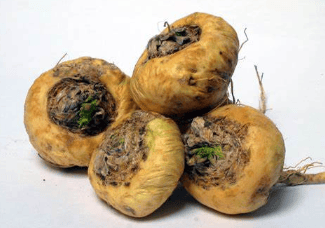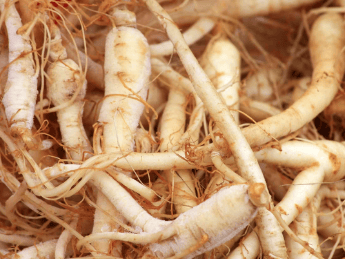With more people aiming to cut back on caffeine and artificial stimulants, the spotlight is shifting toward natural energy boosters. Herbal remedies like maca root and ginseng are gaining popularity for their ability to enhance stamina, support mental clarity, and improve overall vitality—without the jitters or crash.
These two powerhouse herbs have been used for centuries in traditional medicine systems: maca in the Andes of Peru, and ginseng in East Asia. Both are known for their adaptogenic properties, meaning they help the body cope with stress while promoting balanced energy levels. But while they share some benefits, they also differ in how they work and who may benefit most from each.
In this article, we’ll explore the key differences between maca root and ginseng, their unique benefits, how to use them safely, and which may be the better choice depending on your health goals. Whether you’re dealing with fatigue, seeking better focus, or looking for a workout edge, understanding these herbs can help you find the best herbal energy booster for your needs.
What Is Maca Root?

Maca root is a nutrient-dense tuber native to the high-altitude regions of the Andes Mountains in Peru, where it has been cultivated for over 2,000 years. Traditionally used by Incan warriors for stamina and strength, maca has long been valued for its natural energy-boosting and hormone-balancing properties.
Maca comes in several colors—yellow, red, and black—each with slightly different benefits, but all varieties are rich in key nutrients that support vitality. It contains B vitamins, iron, potassium, and amino acids, which play a crucial role in energy metabolism and muscle function. Maca is also an adaptogen, meaning it helps the body adapt to physical and emotional stress.
Research suggests that maca may help boost endurance, improve mood, and support mental focus—making it a popular caffeine-free alternative for those seeking more stable, long-lasting energy. Some studies also note its positive impact on sexual function and hormonal balance, especially in women experiencing menopause or men with low libido.
Whether added to smoothies or taken as a supplement, maca root offers a natural source of energy without caffeine, making it ideal for daily use without the risk of overstimulation or energy crashes.
What Is Ginseng?

Ginseng is a powerful herbal remedy with a long history in Traditional Chinese Medicine (TCM), prized for its ability to enhance energy, improve mental clarity, and strengthen the immune system. There are two primary types of ginseng: Asian ginseng (Panax ginseng) and American ginseng (Panax quinquefolius)—both belong to the same genus but offer slightly different effects.
Asian ginseng is typically more stimulating, known for increasing physical stamina, supporting cognitive performance, and helping the body recover from fatigue. American ginseng is considered gentler, often used to boost immune function and reduce inflammation, while still supporting energy levels.
Ginseng is classified as an adaptogen, meaning it helps the body adapt to physical and mental stress by balancing systems like the nervous and endocrine systems. This can result in smoother energy levels, reduced fatigue, and improved resilience during stressful periods.
Modern studies support ginseng’s benefits for mental alertness, working memory, and exercise endurance. It’s often found in teas, capsules, or tinctures, and works best when taken consistently over time. For people looking to fight fatigue without caffeine, ginseng offers a natural, research-backed energy boost—with the added bonus of supporting immune and stress responses.
Maca vs Ginseng: Key Differences
Both maca root and ginseng are celebrated for their ability to support energy, resilience, and overall well-being—but they work in unique ways. Here’s how they stack up across key health benefits:
1. Energy Boost
- Maca: Primarily supports physical stamina. Traditionally used by Incan warriors to enhance endurance and vitality. It may increase energy over time without overstimulation or crashes.
- Ginseng: Offers a broader energy lift, enhancing both mental and physical performance. Studies suggest Panax ginseng improves mental focus, reaction time, and fatigue resistance.
2. Hormonal Support
- Maca: Known for balancing hormones, particularly in women during menopause and for boosting libido in both sexes. It does not contain hormones but may help regulate the hypothalamic-pituitary axis.
- Ginseng: Shown in some studies to support testosterone levels in men and aid in stress-related hormone regulation. It’s also linked to enhanced fertility in males.
3. Stress and Mood Support
- Both herbs are adaptogens, which means they help the body cope with stress.
- Maca: May support emotional balance and reduce symptoms of anxiety and depression, possibly due to its effect on cortisol levels.
- Ginseng: Offers stronger evidence for mood enhancement and immune function support, making it a popular choice for those dealing with burnout or chronic stress.
4. Workout & Physical Performance
- Maca: Ideal for endurance training. Some small studies and athlete testimonials suggest it helps with sustained physical output and quicker recovery.
- Ginseng: May improve muscle recovery, reduce exercise-induced oxidative stress, and enhance VO2 max. Often used in sports nutrition for performance and recuperation.
Quick Comparison Table:
| Benefit | Maca Root | Ginseng |
|---|---|---|
| Energy Support | Physical stamina | Mental + physical energy |
| Hormonal Balance | Libido, female hormone support | Testosterone, stress hormone regulation |
| Mood & Stress | Adaptogen; mild mood support | Strong mood, stress & immunity support |
| Exercise Benefits | Endurance and vitality | Performance and muscle recovery |
Both maca and ginseng are herbs that fight fatigue, but your choice depends on your primary goal: Maca is great for hormonal and stamina support, while ginseng shines in mental performance and stress recovery.
Who Should Take Maca vs Ginseng?
Choosing between maca and ginseng depends on your specific energy, fitness, and wellness goals. Both herbs offer natural support without caffeine—but they shine in different areas.
Choose Maca If:
- You’re looking to support hormone balance, especially during menopause or for libido support.
- You need a gentle energy boost that builds over time—without jitters or crashes.
- You’re focused on physical stamina, endurance, or workout performance.
- You’re avoiding stimulants or are sensitive to caffeine or energizing herbs.
Maca is especially popular among athletes, women seeking hormone support, and those looking for non-stimulant energy supplements.
Choose Ginseng If:
- You want more mental clarity, alertness, and focus, especially under stress or fatigue.
- You’re managing stress levels or low immunity and need adaptogenic support.
- You’re looking to boost physical performance and recovery, especially with intense exercise.
Ginseng is often favored by busy professionals, students, or those recovering from illness or burnout.
Can You Take Maca and Ginseng Together?
Yes—with proper dosage and professional guidance, maca and ginseng can complement each other. Together, they may enhance physical stamina, stress resilience, and metabolic function, without relying on caffeine.
Whether you’re training for performance, balancing hormones, or looking for an energy supplement without caffeine, maca and ginseng offer time-tested, natural solutions. Always start with small doses and monitor how your body responds.
Dosage, Side Effects, and Safety
When using natural supplements like maca and ginseng for energy, it’s important to understand safe dosages, potential side effects, and who should avoid them.
Typical Dosages
- Maca Root: Most studies use 500–1500 mg per day, taken as a powder, capsule, or extract. Start with lower doses and gradually increase as needed.
- Ginseng (Panax or American): Common dosages range from 200–1000 mg daily of standardized extract, typically divided into two doses.
Always follow product instructions or consult a healthcare provider—especially when combining natural supplements for energy.
Potential Side Effects
- Maca Side Effects: Generally well-tolerated, but hormonal sensitivity may occur in some people (e.g., those with estrogen-sensitive conditions like PCOS or endometriosis).
- Ginseng Side Effects: Can cause insomnia, nervousness, or headaches, especially at higher doses or when taken late in the day.
Both herbs may interact with certain medications, and long-term effects are still being studied.
Who Should Use Caution?
Avoid or consult a healthcare provider before using maca or ginseng if you:
- Are pregnant or breastfeeding
- Have thyroid issues (maca may affect hormone levels)
- Take medications for high blood pressure, diabetes, or blood thinners
While both herbs are considered safe for most healthy adults, responsible use is key. Stick with moderate doses, watch for side effects, and always talk to a healthcare provider if you have underlying conditions or take prescription meds.
FAQs: Maca vs Ginseng for Energy
Can I take maca and ginseng together?
Yes, you can take maca and ginseng together for a balanced approach to energy. Maca supports stamina and hormone balance, while ginseng enhances focus, immune function, and physical recovery. For safety, start with low to moderate doses and consult your healthcare provider—especially if you’re pregnant, on medication, or have thyroid or blood pressure concerns.
Which is better for workouts—maca or ginseng?
It depends on your workout style.
- Maca is ideal for endurance-based training, cardio, and general stamina.
- Ginseng, particularly Panax, is better for mental focus, muscle recovery, and strength-based performance.
For many, combining both delivers comprehensive workout support.
Do maca and ginseng have caffeine?
No—neither maca nor ginseng contains caffeine. These herbs are excellent natural energy boosters without the crash, jitteriness, or dependency issues often linked with caffeine.
How long until you feel the effects?
This varies by person and supplement quality:
- Ginseng: Some notice enhanced mental clarity and energy within a few days.
- Maca: Benefits such as hormonal balance, mood enhancement, and stamina may take 2–4 weeks of consistent use.
For optimal results, take regularly and choose high-quality, standardized extracts.
Conclusion: Choosing Between Maca Root and Ginseng for Natural Energy
Maca root and ginseng are both powerful, caffeine-free ways to boost your energy naturally. Each offers unique benefits—maca is best known for enhancing stamina and supporting hormone balance, while ginseng shines when it comes to improving mental focus, physical performance, and immunity.
Your ideal choice depends on your personal health goals—whether that’s natural energy without caffeine, better workouts, or hormone support. You can even use them together in moderation for a more complete approach.
As with any supplement, it’s smart to consult a healthcare provider before long-term use or combining herbs. With the right choice and routine, these time-tested botanicals can help you feel more energized, focused, and resilient—naturally.
